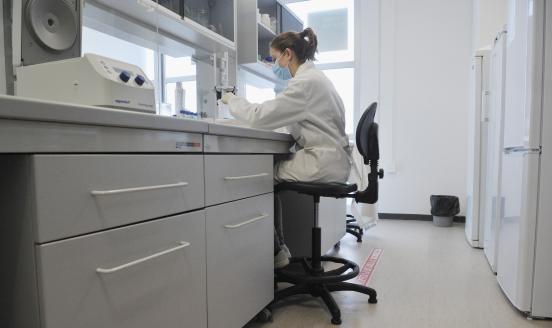The impact of Brexit for Research & Innovation in Europe
This event featured a new and interactive format, with a restricted and high-level on-site audience and in parallel, it has been livestreamed on our w
Speakers
Reinhilde Veugelers
Senior fellow
Matt Dann
Former Secretary General,
Alastair Buchan
Head of Brexit Strategy, University of Oxford,
Kurt Deketelaere
Secretary General, LERU, Professor of Law at KU Leuven and Chairman of Sustainability College Bruges,
David Earnshaw Earnshaw
Associate Vice President, MSD,
Maryline Fiaschi
Managing Director, Science|Business,
Martin Muller
Executive Director, Academic Forum, Geneva Science and Diplomacy Anticipator,
Christian Naczinsky
Head of department EU and OECD Research Policy, Austrian Federal Ministry of Science, Research and Economy,
Video & Audio Materials
Summary
The panel presented the current state of affairs with regards to the Research & Innovation (R&I) policy for the EU27 and the UK. They also discussed the factors underlying this situation. Even though the case for collaborative R&I investment is economically sound for both the UK and the EU when looking at short-terms horizons, there is a consensus that R&I policy is much more than just about money. Beyond EU’s direct funding, benefits are also found in the numerous transnational collaborations that are not funded by governments, but rather facilitated by the free movement of people and regulatory harmonization. Panellists highlighted that UK-EU collaboration was also key for contributing to the relevance of European research worldwide and sustaining a historically unique atmosphere for cooperative technological progress.
There was nevertheless a clear understanding that R&I policy would be a second-order concern in the Brexit negotiations. Indeed, the crux of the Brexit issue is the free movement of people, not R&I, similar to the 2014 Swiss referendum on mass immigration. Given the all-or-nothing red lines drawn by both negotiating parties, R&I collaboration and access to the European Research Area might become bargaining chips for the negotiations. Whether there is the political will on either side is also an open question. While UK-EU R&I relationship has been mutually beneficial collectively, a few stakeholders on both sides might individually benefit from the separation. This undermines the possibility for the R&I community to coherently influence the political debate, contrary to the Swiss referendum case where active advocacy on both sides was somewhat effective.
Beyond this state of affairs, one avenue of progress would be for the EU to proactively design its international R&I cooperation policy. Given its current inability to engage e.g. US institutions and the declining share of international applications in Horizon 2020 compared to the previous framework programme, Brexit might well become the trigger for the EU to finally develop an effective R&I international cooperation strategy. Rather than tailoring it to the case of the UK, the EU should think strategically of ways to engage all global partners and then suggest a similar partnership to the UK.
Event notes by Nicolas Moës, Research Assistant.











